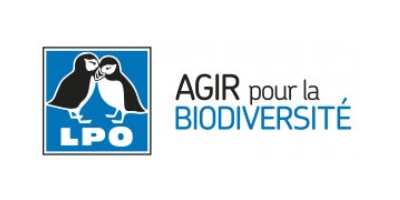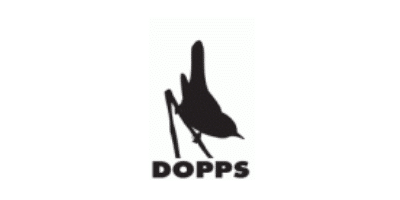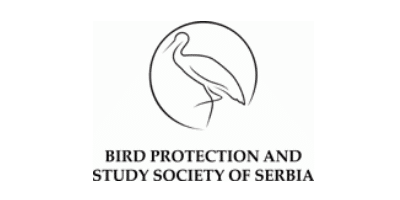How reviving traditional farming practices in the Mediterranean is enriching nature and people
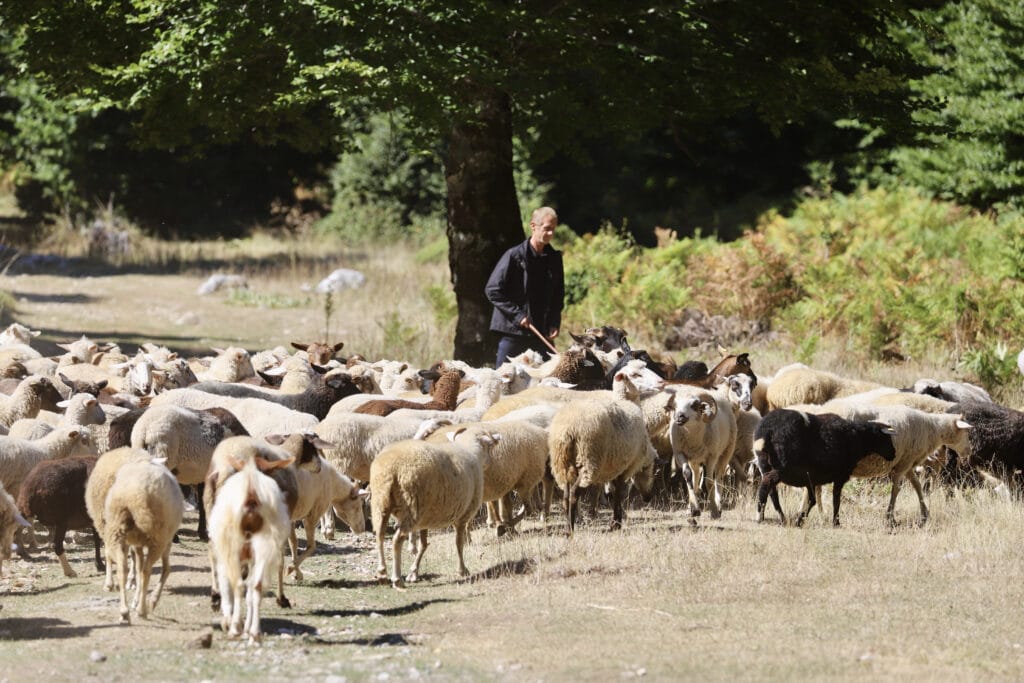
From restoring Albanian pastures, to protecting Moroccan vultures, to empowering female Tunisian shepherds and aiding Jordanian olive groves, sometimes going backwards is the way forwards.
Header image: A shepherd bringing his sheep and goats out to graze in Shebenik-Jabllanicë National Park, Albania © Olivier Langrand
Every morning in the summer months, Fatjoni wakes up early and emerges from his hillside farmhouse into the stunning scenery of the Albanian mountains. Their peaks stretch out around him, shrouded in clouds, their sloping sides dotted with stands of trees and golden pastureland. As he leads his herd of goats out of their enclosure and up the mountainside, flowers shine out from the undergrowth in flashes of yellow and purple. A snake, basking in early morning sun, slithers into the bushes at the sound of approaching hooves.
Fatjoni is part of a dying breed: a young pastoralist following the traditional practices used by his ancestors for thousands of years. Over the past three decades, traditional livestock breeding has been slowly abandoned as younger generations move to urban areas in search of more metropolitan opportunities. “Young people are not so keen to stay and work only with livestock. Whoever stays has to fight some kind of isolation as there is almost no digital connection in the mountains,” explains Mirjan Topi, Small Grants Coordinator for the Critical Ecosystems Partnership Fund (CEPF) in Albania.
This has led to a vicious circle, as the sparse population makes it harder for those who remain to continue their livelihoods. “One of the reasons that alpine pastures are not grazed is the lack of water,” outlines Topi. “In the past, people made structures to collect rainwater. But as the number of shepherds has decreased, these structures are no longer maintained, and have lost their function.”
KEEPING WIDE OPEN SPACES
Herders like Fatjoni aren’t the only ones losing out in this situation. Over thousands of years of grazing, the mountains of the Balkans have developed a unique ecosystem. The highlands and pastures in particular are home to plant species found nowhere else, including the beautifully unusual Albanian Lilly, as well as rare reptiles such as Meadow Viper. These slopes are now a hotspot of biodiversity – but as increasingly large expanses of land become abandoned and overgrown, this exceptional wildlife community is dying out.
“I have seen degraded pastures in some areas where it was hard to find a single flower amid the dense grass,” Topi says. “It would be very hard for reptiles to live in these habitats, as it would be difficult for them to move and hunt.”
This is where BirdLife stepped in. In our role as Regional Implementation Team for the Mediterranean Hotspot, we facilitated three grants from CEPF to support traditional livestock breeding through local organisations – part of a conservation focus on ‘cultural landscapes’. AlbNatura, a local conservation group, jumped into action to improve water facilities and provide solar panels and internet antennas, enabling shepherds (including Fatjoni) to connect with the outside world. Local people are already reaping the benefits: one shepherding family is now able to keep in touch with their daughter, who studies in France.
Another grant aims to set up ecotourism in the area, helping local people to provide accommodation and food for tourists. As well as diversifying their incomes, Topi hopes that this will motivate younger generations to stay in the countryside and combine ecotourism with traditional practices. “It would be very boring for a young person to just be a shepherd, but if they got involved in tourism activities – welcoming guests into their homes, and so on – then it will be more attractive,” he reasons.

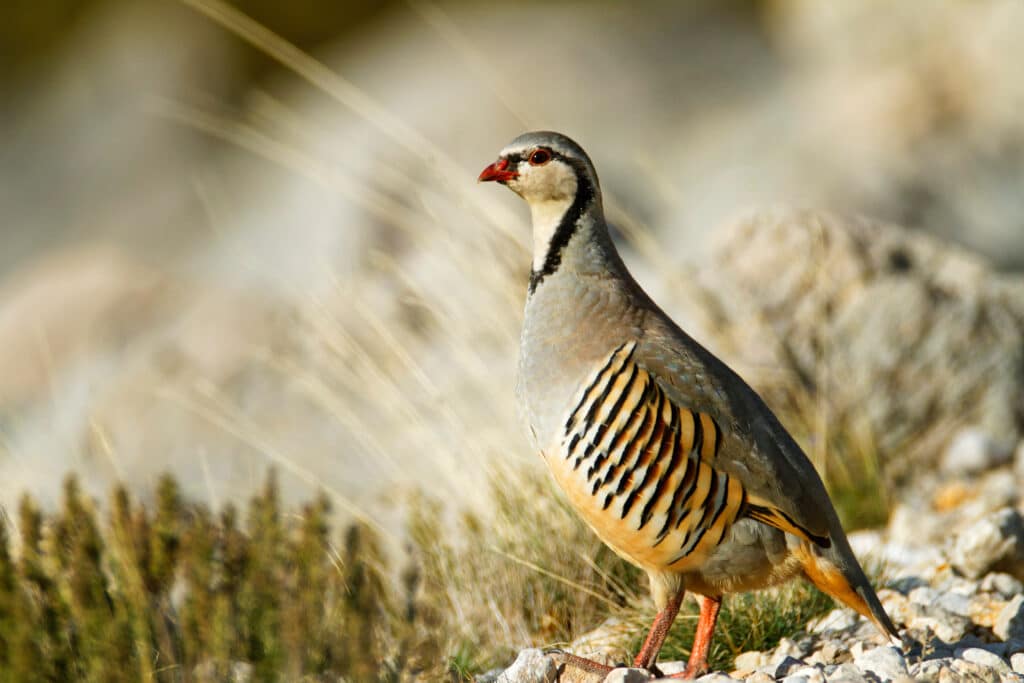
Topi recounts a touching moment when a local farmer told him:
“Thank you very much.. For 30 years no one has remembered us or provided us with help. My heart is full now to see my herd drinking water on the grazing site. It is good that things are starting to change.”
LIFELINE FOR VULTURES
A similar project is underway in Morocco, with an additional benefit: it could help bring threatened vultures back from the brink of extinction. Jbel Moussa is located near the Strait of Gibraltar, the narrow strip of water that separates Africa and Europe. Vast concentrations of migratory raptors, which dislike flying over large stretches of ocean, get funnelled over this crossing on their arduous journey between European breeding grounds and African wintering grounds. Many of these birds stop to rest and refuel on the mountain slopes of Jbel Moussa, feasting on partridges, quails and small mammals that range across the open meadows – or, in the case of vultures, on the remains of dead livestock.
However, as livestock herders retreat, these wide open spaces are becoming choked with vegetation, making it hard for birds of prey such as Black Kite to hunt for food – and depriving vultures of much needed carrion. Threatened species such as Rüppell’s Vulture (Critically Endangered) and Egyptian Vulture (Endangered) are now facing food shortages at a vital stage of their journey.
To combat this, GREPOM (BirdLife in Morocco), working alongside the Department of Water and Forests, is building partnerships with local herders to collect carcasses and slaughterhouse waste, which are deposited across key areas at peak migration times. They are also encouraging pastoralists to stay in the area by providing water troughs and helping them to obtain improved accreditation and certification for their products. Herders can now get a much better deal for produce such as meat, milk, cheese and wool thanks to these premium labels. To top it off, GREPOM is helping local residents to develop birdwatching ecotourism, taking advantage of the spectacular bird migration that passes overhead at this key ‘bottleneck’.
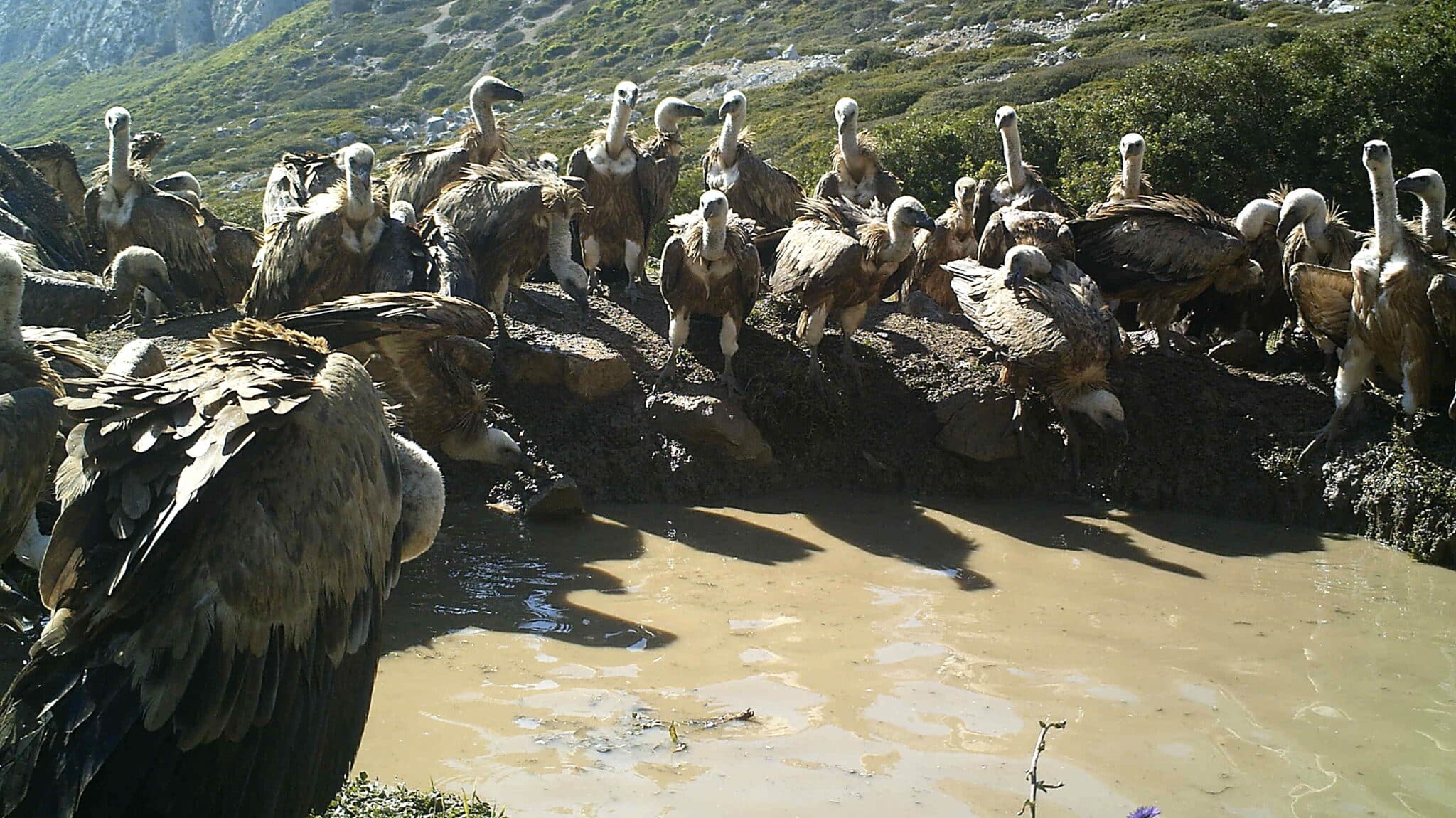
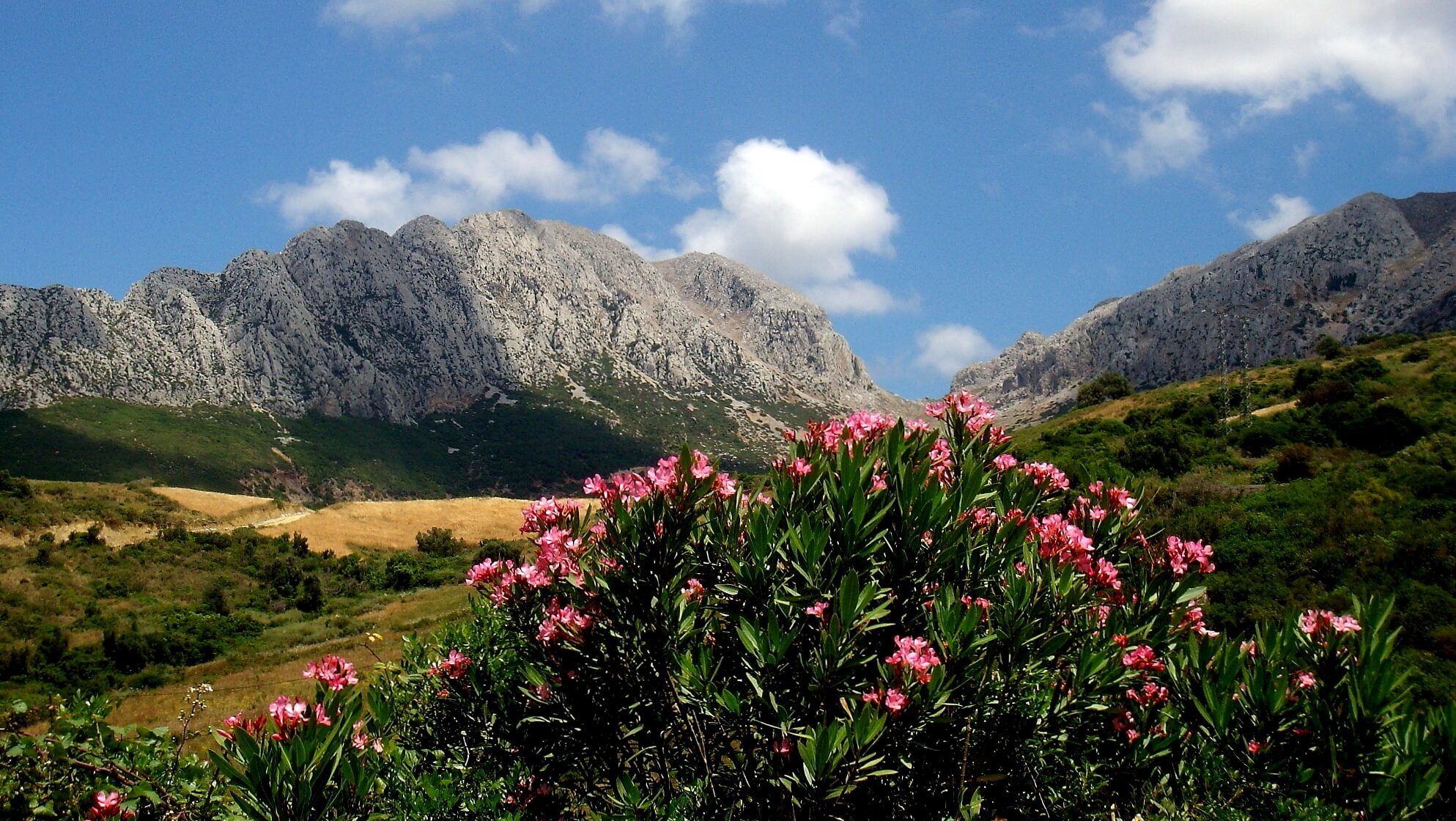
EMPOWERING RURAL WOMEN
When we think of shepherds, we often think of bearded men in sheepskin coats carrying long wooden crooks. But a lot of shepherds in the Kroumirie region of Tunisia are women, who are often left behind to care for their flocks while the men head to towns and cities in search of work. In this case, overgrazing is the problem, since large groups of women often take their sheep into the forests around El Feija National Park. With a new management plan in place for the park, bringing with it changes to grazing practices, local conservation organisation Association Sidi Bouzitoun is promoting alternative sources of income to supplement pastoralism.
As part of this, the association provides training sessions in other traditional practices such as making honey, essential oils and pottery. They offered women from 30 families the opportunity to organise three local markets in Jendouba city to sell their wares directly, facilitated trading agreements with local shops and established a small production workshop for women in El Feija to create a new brand for essential oils.
Jason Deschamps, Project Assistant for CEPF in North Africa, explains: “The project aims to reinforce women against ‘economic middlemen’ who often abuse their positions by creating monopolies on their products, pressing unfair prices on the women who have no other alternatives.” Today, women have the confidence to attend markets in person, proudly promoting the products of their hard work and expertise. “Seeing the impact of our work on women’s lives gives me the feeling that I am in the right direction to achieve my greater goal,” says Hajer Ghazouani, Project Co-ordinator at Association Sidi Bouzitoun.
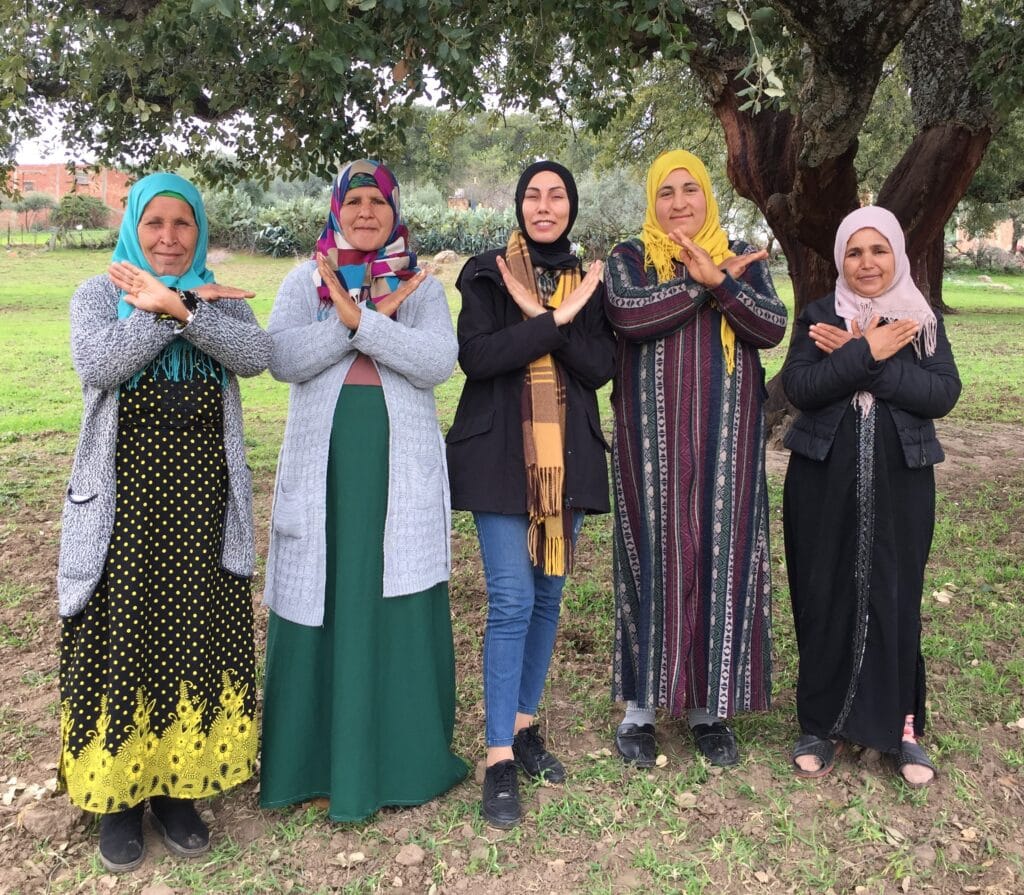
“Seeing the impact of our work on women’s lives gives me the feeling that I am in the right direction to achieve my greater goal,”
Hajer Ghazouani, Project Co-ordinator at Association Sidi Bouzitoun.
It’s a lesson that has proven itself true again and again: local people are the key to protecting natural habitats. By empowering them to manage their local ecosystems and enrich their own livelihoods, we are sowing a seed that will continue to bear fruit for many years. As Mirjan Topi says of the mountains of Albania, “These grants may be small and with a short life, but their impact and sustainability will most likely be for decades.”
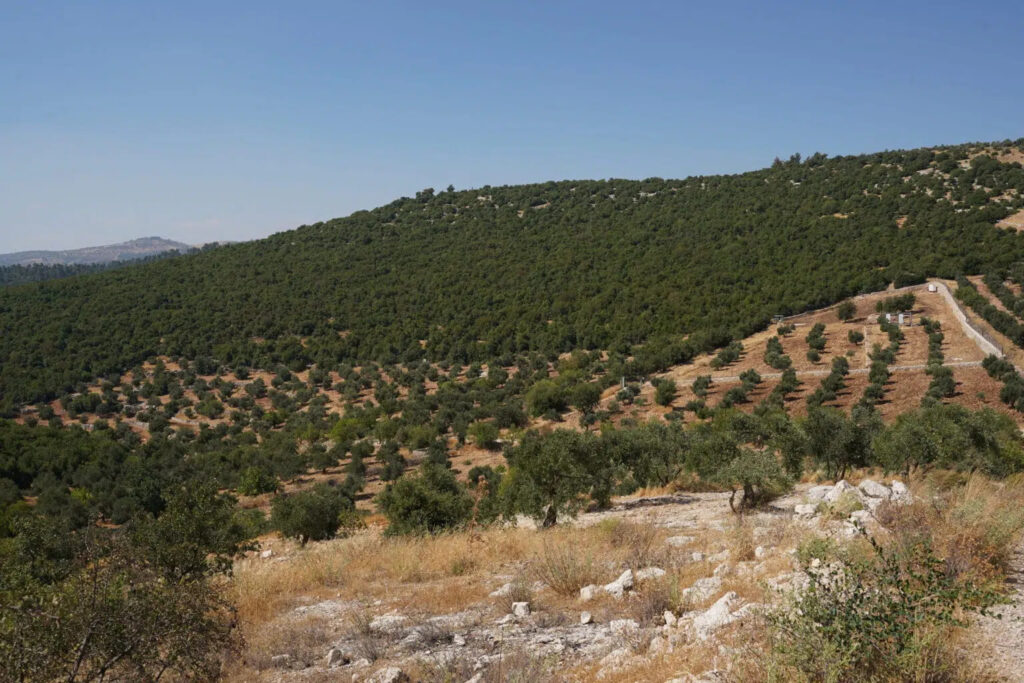
Aiding Ailing Olive Groves
Jordan’s ancient olive groves – and natural forests – are under threat from urban expansion and large-scale tourism resorts. Olive yields themselves are dropping due to genetically ‘improved’ tree varieties and artificial pesticides, which also harm local wildlife. To keep trees standing and local people in profit, CEPF funded local company Enviromatics to train farmers in eco-friendly pest control and traditional practices. One farmer, who lost a whole year’s yield to insects, now knows how to save it by acquiring just a few insect traps. Another farmer thanked the project team for saving his life: while walking on his farm, he noticed the venomous Palestine Viper hidden between two trees. Without training, he might have died from a viper bite.
Image: Some trees in Jordan’s olive groves are hundreds of years old © Enviromatics
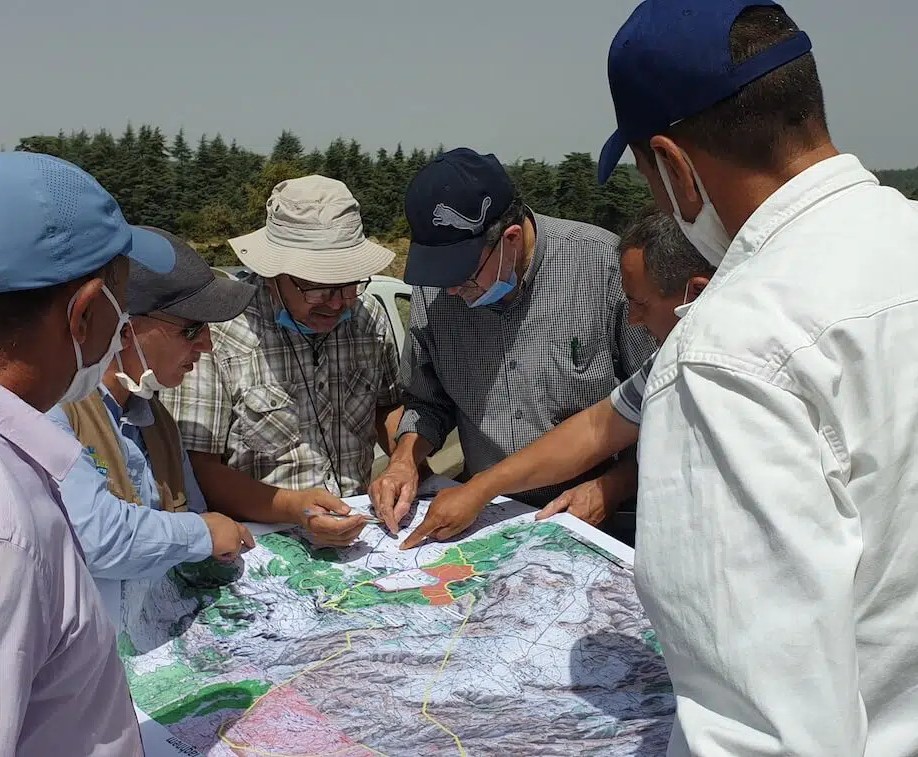
Home on the range
Morocco’s traditional rangelands protect wildlife and people from flooding and soil erosion, as well as replenishing underground water supplies. Sadly, intensive agriculture and overgrazing are depleting vegetation, causing widespread desertification. To address this, CEPF supported local organisation AFMI to revive the ancient Agdal system in Ifrane National Park. This is a communal governance system by which pastoralists manage common land and regulate the grazing of livestock. In years gone by, Agdals ensured that resources were not exhausted, and that the area’s wild plants and animals remained intact. AFMI held numerous meetings with local communities over six months, and after witnessing the growth of plants and the enrichment of wildlife, they pledged in favour of adopting this new, yet traditional, system.
Image: AFMI worked with local people to map out land use in Ifrane National Park © Zaid Salmad / AFMI

*The Critical Ecosystem Partnership Fund (CEPF) is a joint initiative of l’Agence Française de Développement, Conservation International, the European Union, the Global Environment Facility, the Government of Japan, and the World Bank. Additional funding has been provided by the MAVA Foundation. A fundamental goal is to ensure civil society is engaged in biodiversity conservation.
CEPF is more than just a funding provider. A dedicated Regional Implementation Team (RIT) (expert officers on the ground) guide funding to the most important areas and to even the smallest of organisations; building civil society capacities, improving conservation outcomes, strengthening networks and sharing best practices. In the Mediterranean Basin Biodiversity Hotspot, the RIT is entrusted to BirdLife International and its Partners: LPO (BirdLife France), DOPPS (BirdLife Slovenia) and BPSSS (BirdLife Serbia).Find out more at www.birdlife.org/cepf-med

